How to choose an audio interface for your home studio and record anything into your computer
An audio interface is a studio essential. Here’s everything you need to consider when buying your first one, or your next one...
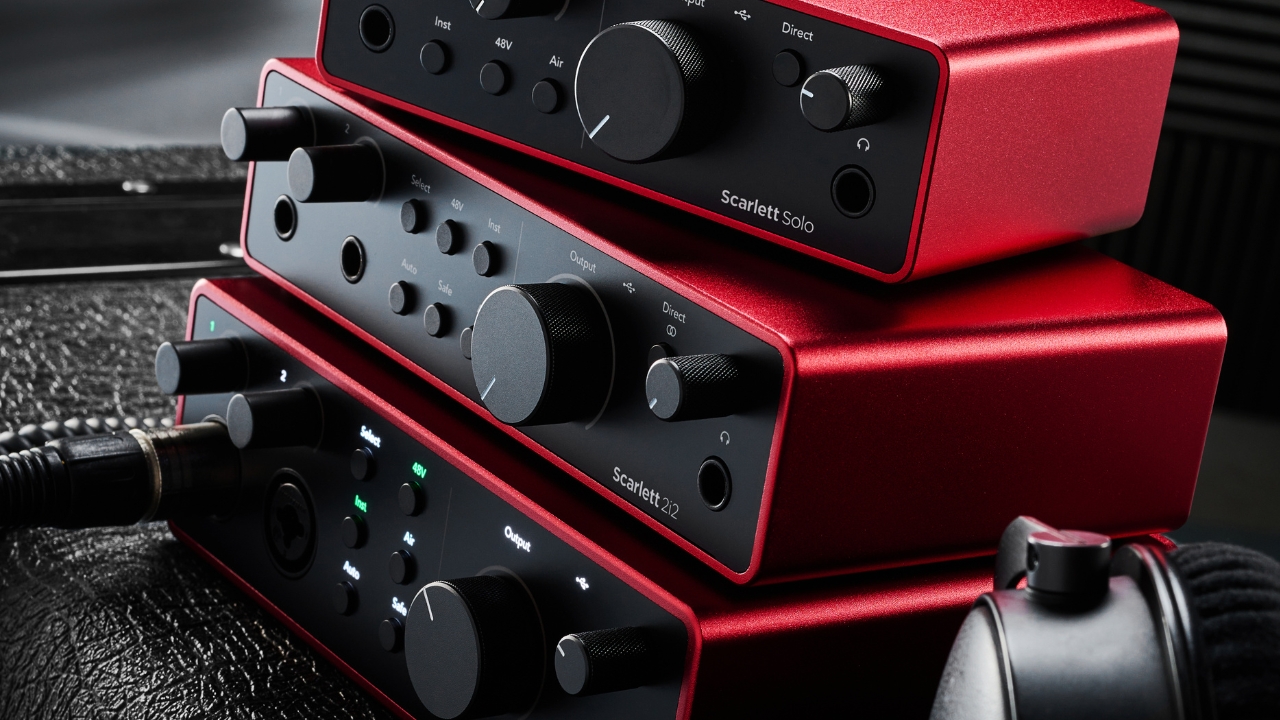
For recording and music production, there are a lot of items you could class as ‘luxury’ items. You don’t need them, but they add something unique or special to your workflow or overall output. On the other hand, there are music production items which are, it’s fair to say, non-negotiable.
Audio interfaces are a great example of this; any studio, whether that's a home setup or professional recording space, will use them because they serve one hugely important purpose, and that is enabling you to control the audio going in and out of your computer.
Old desktop PCs used to rely on internal soundcards, but with modern technology being what it is, that is now almost entirely outsourced to an external audio interface, designed specifically for music production. If you’re new to the world of studios and production, you might wonder what it is they do, and why they’re so essential. If you’ve been wondering which audio interface to buy, allow us to help with this guide to choosing your first, or next, audio interface.
What is an audio interface?
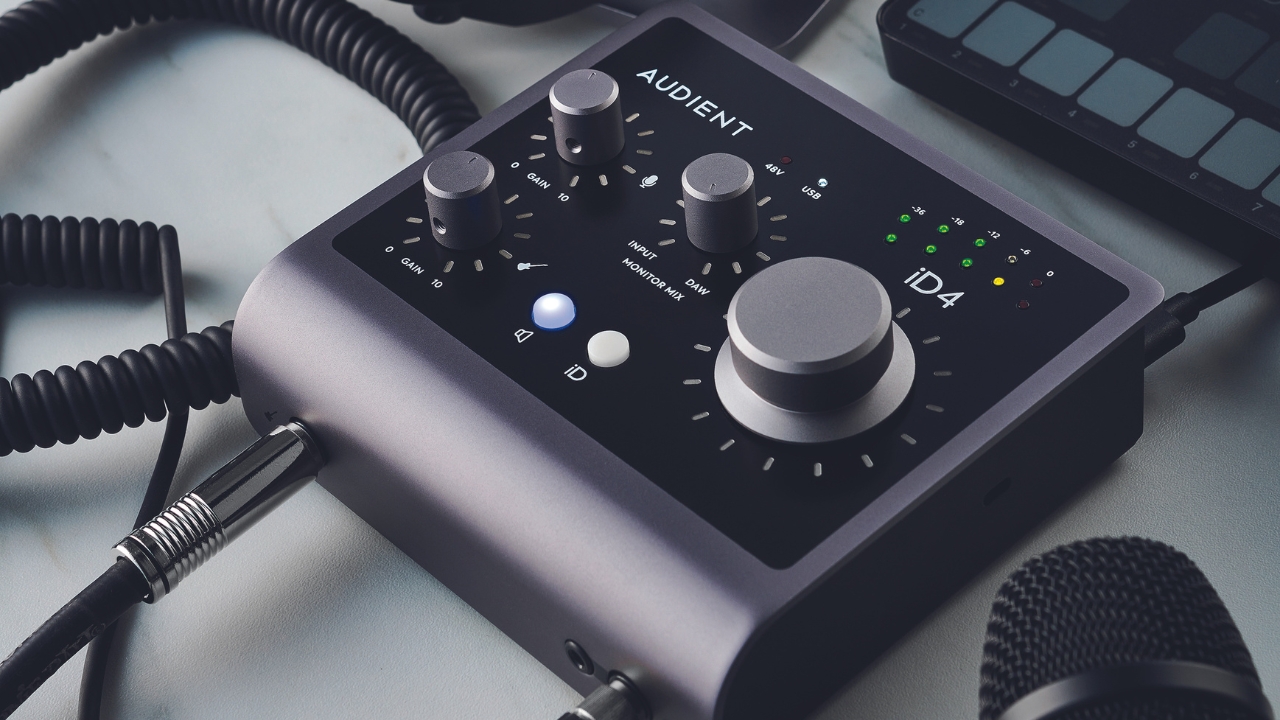
For starters, let's go into more depth on what an audio interface is and the role it plays in your music creation journey. Essentially, audio interfaces are responsible for facilitating audio going in and out of a computer. That means both the capturing or recording of vocals, instruments or other sources of sound, and then outputting the audio either to external studio monitors or studio headphones.
By using an audio interface, you’re taking the burden of processing that signal away from the computer. This means you’ll be able to record without latency - that noticeable gap between picking a note on your electric guitar and your ears actually hearing it - while also gaining physical, tangible control over your audio through various knobs, faders and controls.
Most monitors will provide some kind of visual feedback so you can ensure the signal you’re putting into it isn’t so loud that your audio is distorted. This is important because even incredible top-end audio interfaces can’t magically make bad, noisy, clipped audio sound good. Garbage in, garbage out. But by using the monitoring function you’ll at least be able to optimise your signal before it reaches your DAW (digital audio workstation).
Fundamentally, however, they’re relatively simple to operate. You connect your speakers at the back, and your studio microphone or instrument at the front. Hook up the interface to your PC or laptop and you’re ready to go.
What do audio interfaces enable you to do?
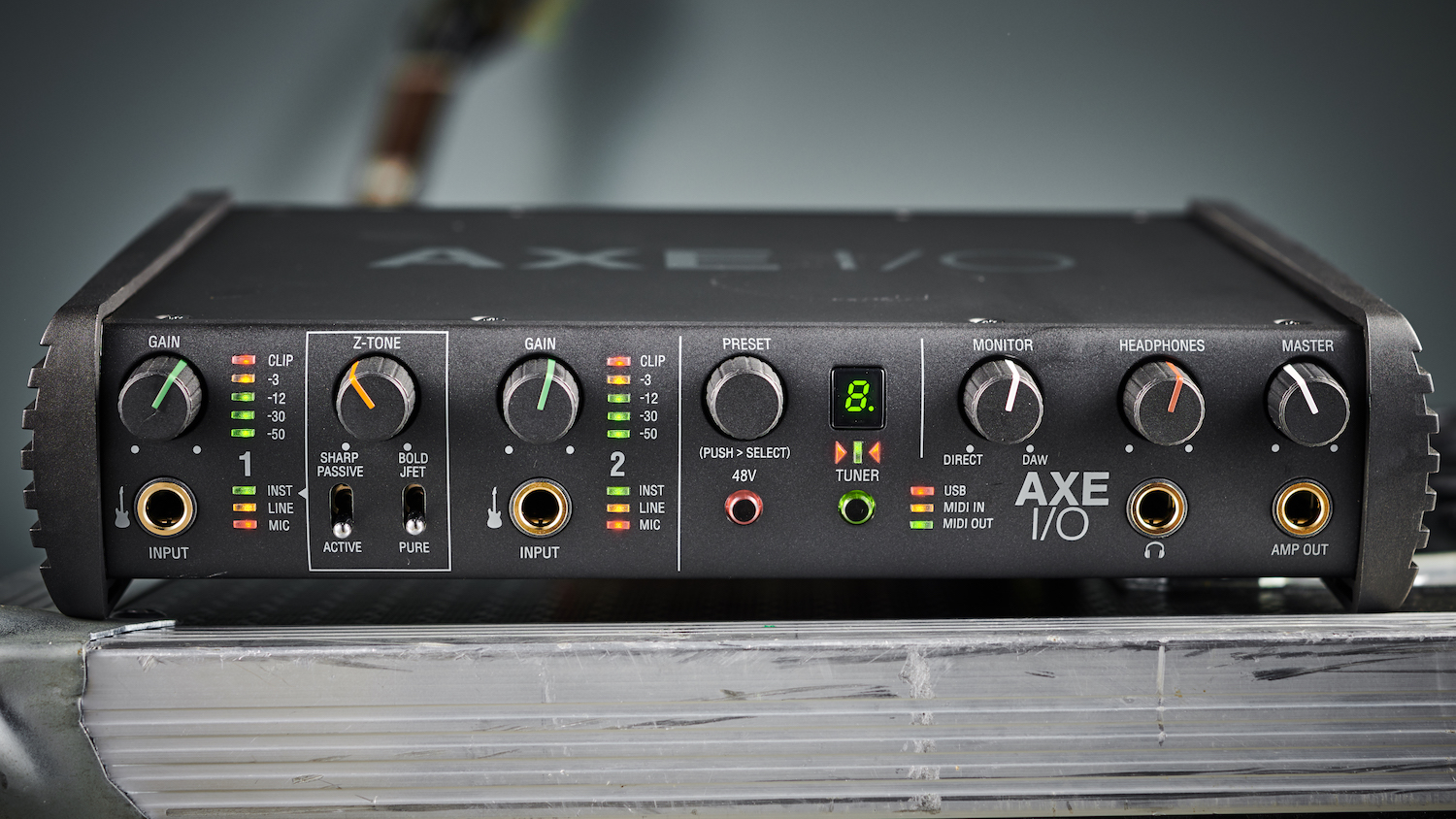
For all their simplicity, audio interfaces do enable you to do certain things you simply can’t with your PC or laptop's internal soundcard. Perhaps the most important, for bands and groups, is the ability to record multiple sources at the same time. You could, for example, hook up two microphones - one for vocals and one for an acoustic guitar - and be able to record them simultaneously. This is important when it comes to editing later, as it gives you individual control over both elements. For larger bands, you’d simply use an interface with more inputs.
Audio interfaces also give you control over the routing of your audio. At a basic level, this could mean sending one output signal to a set of speakers and another to a set of headphones. You use the headphones for silent recording, allowing you to keep in time, and the monitor speakers for editing and production. At the higher end of the scale, you may see routing options for multiple sets of monitors or playback systems, allowing you to test mixes across a range of speakers for accuracy.
Latency, as we mentioned earlier, is also hugely important in recording terms. It’s that gap between playing a note, or speaking into a mic, and then actually hearing it back. Put simply, even a few milliseconds can make all the difference. Built-in soundcards aren’t geared towards recording and suffer badly with high latency. Using an audio interface means you can record - and hear exactly what you’re recording - in (pretty much) real-time.
Depending on the brand and range you choose, you can also expect your audio interface to provide a boost in the sound quality for both recording and playback.
Improvements to workflow
As well as the physical and sonic benefits to using an audio interface, there are some genuine positives when it comes to your recording workflow. Having dedicated knobs or faders to physically control volume levels offers a much more tactile experience than having to use a mouse or trackpad. And, as outlined above, multi-track recording will be a game changer if you’ve never had the opportunity or equipment to do it before.
Connectivity
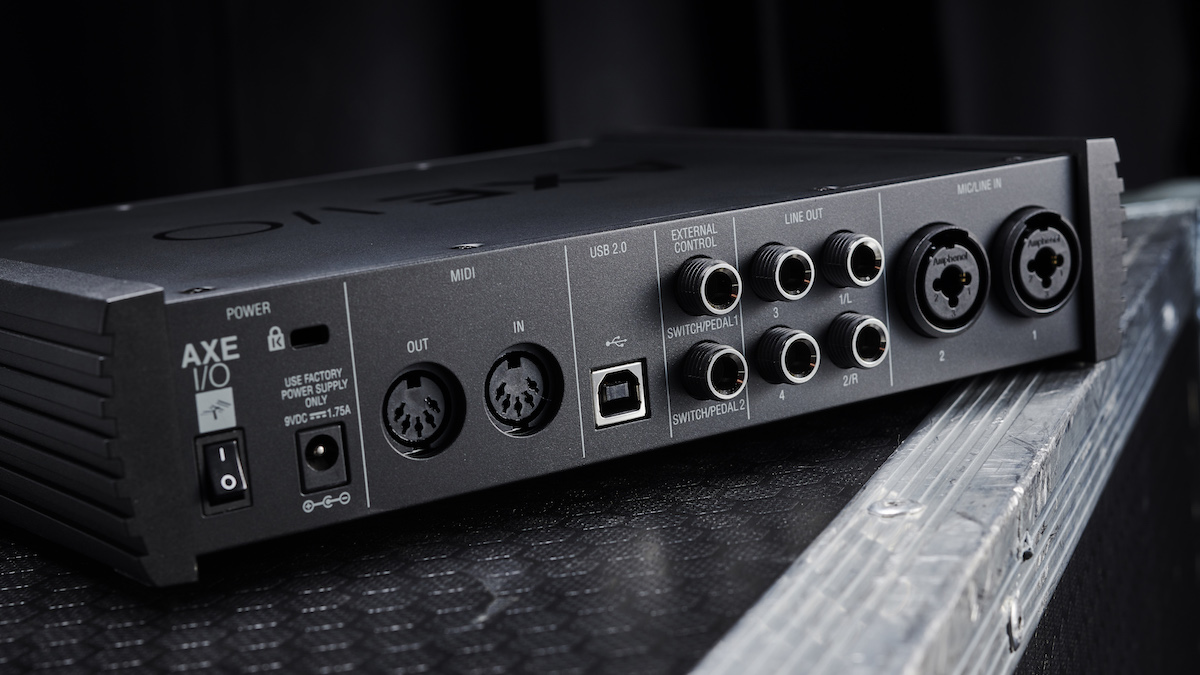
Most audio interfaces will offer a variety of input options, usually including XLR (for microphones) and 1/4-inch jack inputs for guitars, synthesizers and keyboards. Output connections will usually include XLRs, 1/4-inch jacks or a combination, while at the higher end you may find optical, SPDIF or RCA cables for use with DJ equipment.
MIDI I/O is often available via your interface, allowing the computer to communicate with external MIDI gear like synths or drum machines. This means you can, for example, programme a MIDI pattern in your DAW and have it feed back out into a synth or, alternatively, use an external MIDI keyboard to send note data to a virtual instrument in your DAW.
It’s also common to find audio interfaces that offer phantom power. This means you can use condenser microphones, which typically require a power source to function. The interface will pump a small current into the mic, allowing it to operate.
For connecting to your computer, USB-C or Thunderbolt will be the main options, although systems for PCI and Firewire do exist.
Class-compliance and drivers
As with any computer gear, there needs to be a good handshake between the computer itself and the external unit. This takes the form of drivers; for audio, that will usually mean ASIO. Mac users have it easy; their systems will tend to play nicely with any audio interface you can find, without any problems.
Windows users may require a bit more effort, but most manufacturers offer dedicated drivers for their interfaces, available from their website. It’s worth keeping an eye out for driver updates, as they can improve performance and reduce the risk of problems when recording or playing back.
Technical detail
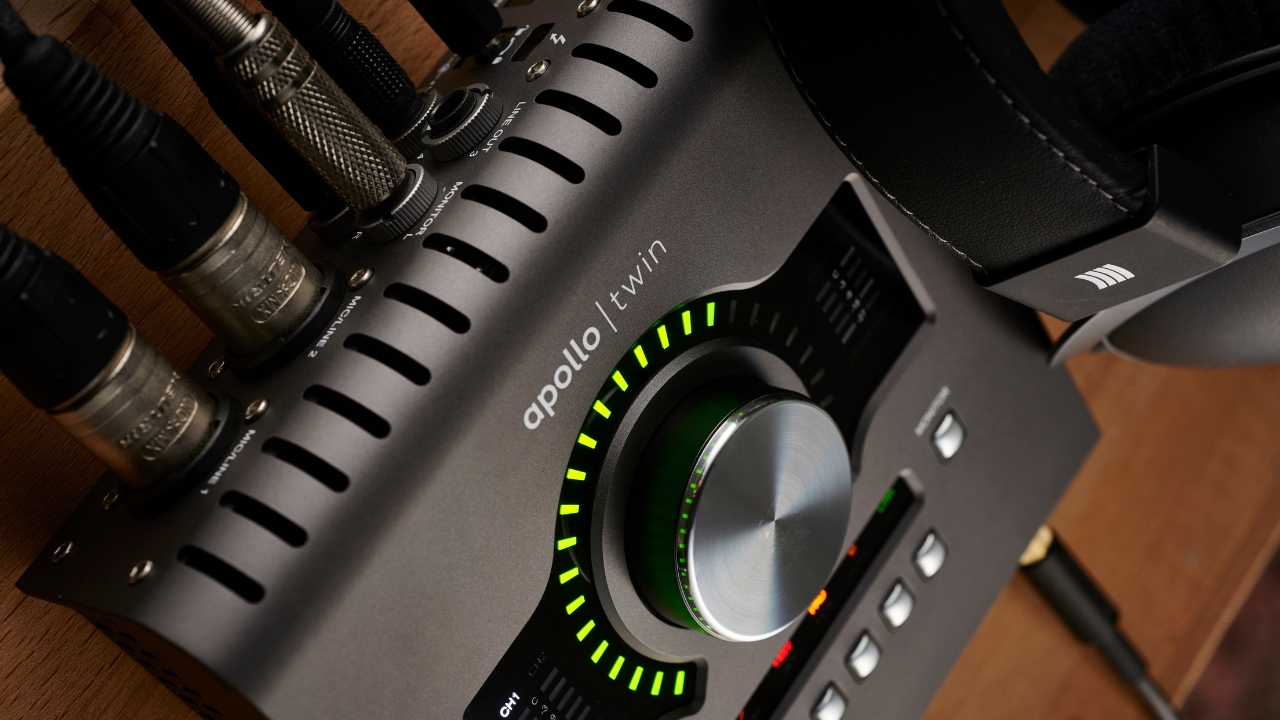
Underneath the hood, there is a whole host of technical wizardry going on to convert the analogue signal from a guitar or microphone, for example, to a digital signal (A/D) which can be read by a computer, and vice versa for outputting the sound to your speakers (D/A).
The quality of an interface is only as good as its preamps. That’s because the signal it receives from a microphone or instrument is relatively quiet, and so needs a boost before the A/D magic can happen. Quality preamps do an amazing job at capturing the ‘good’ parts of the audio, and delivering it to your DAW clearly and accurately, and without background hiss or noise.
Finally, pay attention to the available sample rate and bit depth of your interface. Without going into major detail, sample rate is the amount of sound detail the interface captures, and bit depth is the dynamic difference between quiet and loud. It’s not uncommon to see sample rates of up to 192kHz, but to appreciate that you’re going to need some serious monitoring equipment. A simpler way to look at it is to keep in mind that 44.1kHz is equivalent of CD quality, and 48kHz is like DVD quality. If pristine audio is a goal, then we’d advise looking at 96kHz with a bit depth of 24bit.
Related buyer's guides
MusicRadar's got your back
our experts have compiled a range of audio interface buyer's guides. Find the one you need below:
- The best audio interfaces overall
- The best budget audio interfaces
- The best guitar audio interfaces
- The best audio interfaces for streaming
- The best Focusrite audio interfaces
Want all the hottest music and gear news, reviews, deals, features and more, direct to your inbox? Sign up here.
Chris Corfield is a journalist with over 12 years of experience writing for some of the music world's biggest brands including Orange Amplification, MusicRadar, Guitar World, Total Guitar and Dawsons Music. Chris loves getting nerdy about everything from guitar and bass gear, to synths, microphones, DJ gear and music production hardware.
